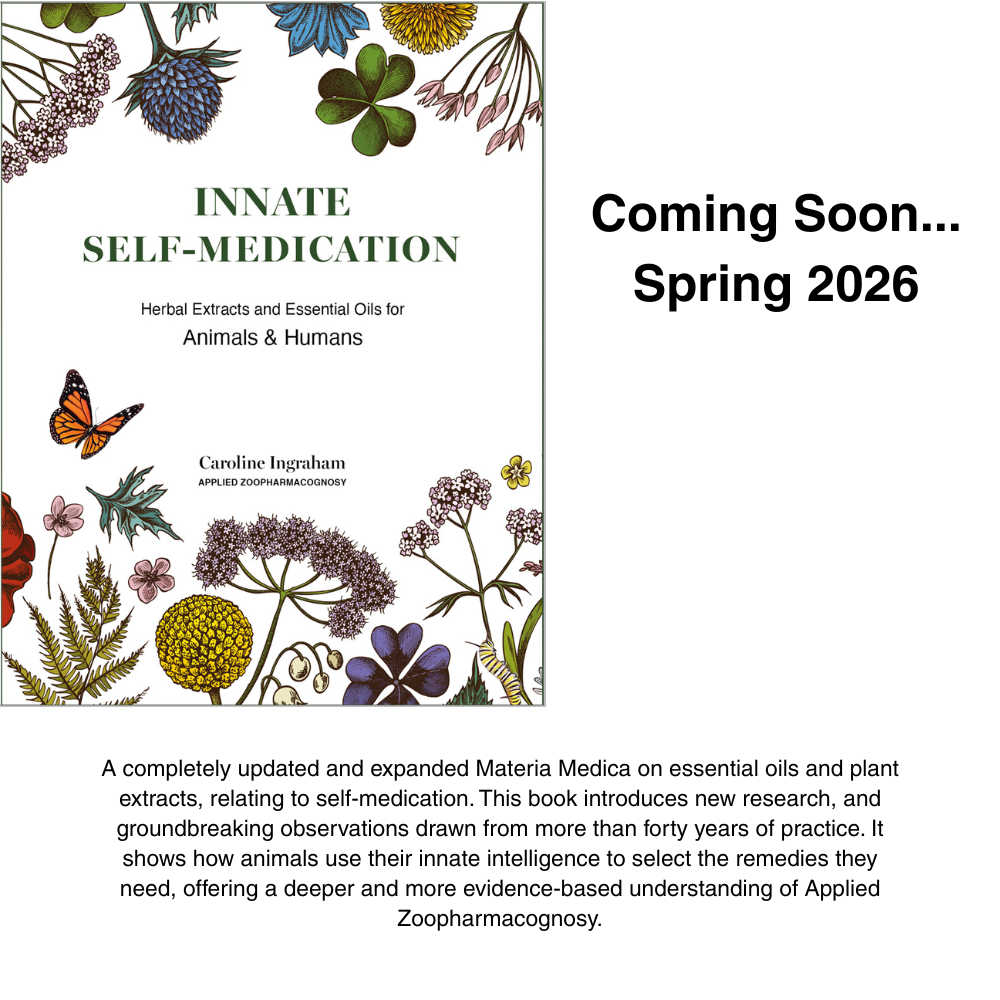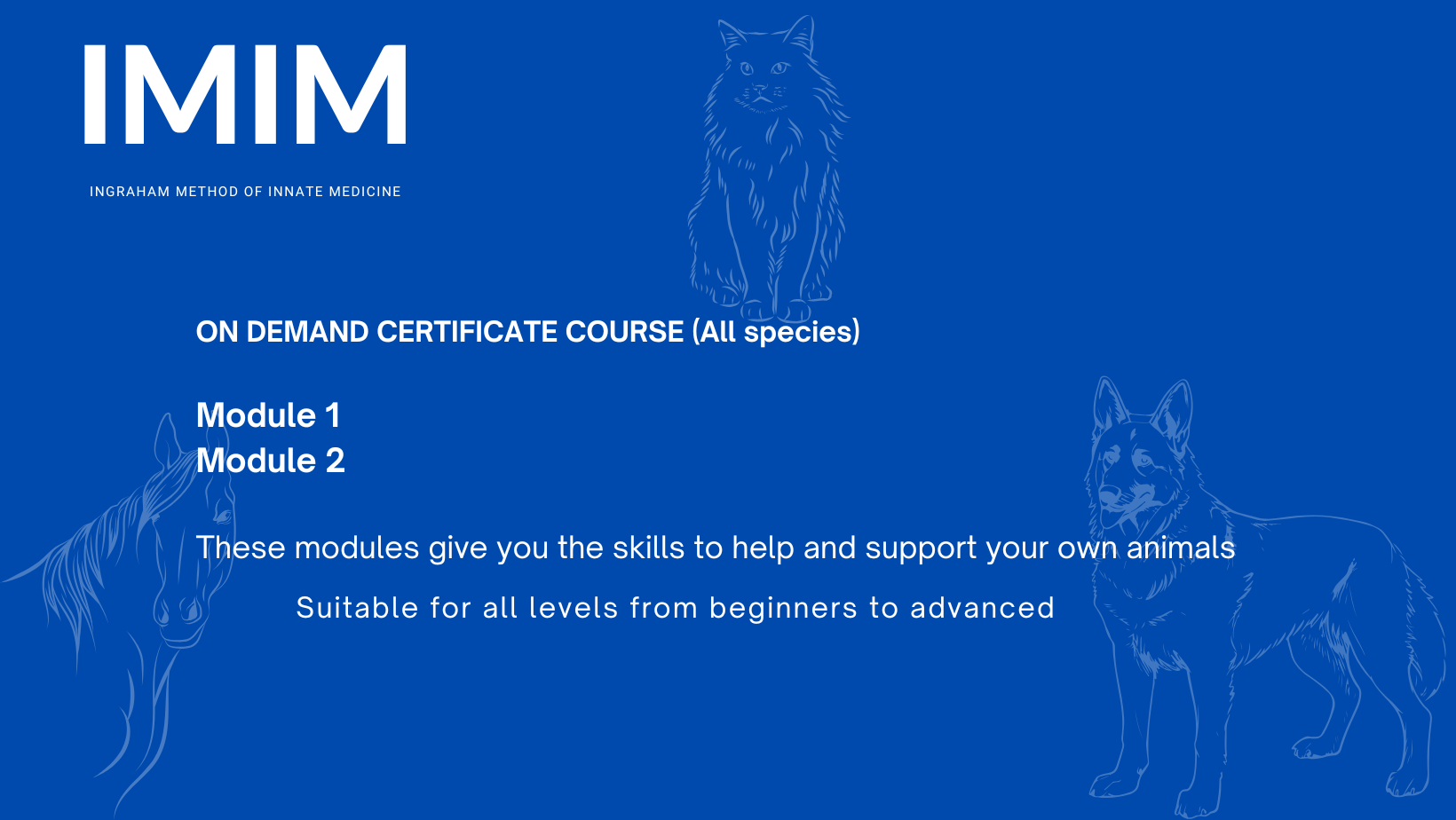Applied Zoopharmacognosy
Ingraham Method Innate Medication
IMIM

"Innate Self -Medication embraces a truly holistic view of animal welfare one that honours the animal as an intelligent being, capable of directing their own healing. When we learn to listen to instinct, to the non-verbal language of another - we begin to uncover a deeper level of care, connection, and understanding."
Caroline Ingraham

Professional Education
Modules One and Two are intentionally designed to provide a complete and meaningful foundation in animal self-medication, observation, and ethical application for non-veterinary participants wishing to support their own animals. Further professional pathways remain available for those working within regulated clinical roles. In line with current legal and regulatory requirements, advanced training beyond Module Two is therefore available to registered veterinarians, registered veterinary nurses, and professional zoologists who operate within established professional and regulatory bodies, where responsibility, oversight, and accountability already exist.
The new policy applies only to new enrolments. Those who completed diploma-level training previously did so under the framework in place at the time, and their qualification remains unchanged.
"The practice of Applied Zoopharmacognosy isn’t about returning to the wild, it’s about remembering what we already know. It’s about recognising that animals, like us, are capable of directing their own healing when given the opportunity. And it’s about learning how to partner with that innate intelligence in respectful, empowering ways."
Caroline Ingraham
Applied Zoopharmacognosy stands on a scientific foundation, looking into what animals select for specific conditions. Observational research not only provides valuable insights into animal welfare, animal behaviour, chronic disease and drug resistance, but also has practical applications for humans.
Disclaimer
This website and its courses are intended as an educational resource, offering insights into the ways animals may instinctively engage with plants, clays, and other natural materials in support of their own well-being. The case studies, observations, and discussions presented here are based on real-world experiences, traditional knowledge, and research within the field of animal self-medication (zoopharmacognosy).
This website and its courses do not offer veterinary advice, nor is it intended to diagnose, treat, or prescribe for any medical or behavioural condition in animals. While some of the natural substances discussed may be selected by animals in certain contexts, their use should never replace the advice and care of a qualified veterinarian.
The author does not claim to be a veterinarian, and this website and its courses are not a substitute for veterinary consultation. Readers are encouraged to seek professional guidance when making decisions that affect the health of animals in their care.
We highly recommend that you are fully trained and understand the subject before using any remedies, or work with a qualified practitioner. Please note that we cannot provide advice on what oils to offer.
The content is shared in good faith for educational purposes and should be interpreted accordingly, respecting the laws and regulations of the reader’s/ students country.





